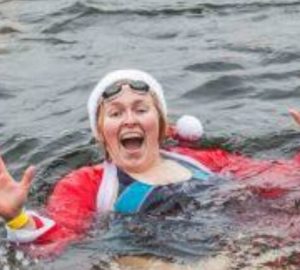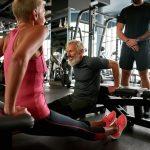Are you a plodder or an improver?
In one of my local pools, where I’ve been swimming for around 10 years, there’s a group of swimmers who are there, without fail, every morning as soon as the doors open. That amount of dedication suggests swimming is very important to these people.
Many of these people – let’s call them “plodders” (no offence intended) – don’t swim very well. Their styles do not necessarily resemble any formal strokes. Some never put their heads in the water. One has a body position in the water that is closer to vertical than horizontal. As far as I can tell, they have made no changes or improvements in their swimming in all the time I’ve observed them. Yet, they seem happy with their swimming and always look as if they enjoy being at the pool.
At the same time, there are plenty of people who come to the pool with the aim of becoming better swimmers. We’ll call these ones “improvers”. They splurge their cash on fitness watches and training aids and they arrive at the pool armed with laminated training sessions and determined looks on their faces. For some reason, these people are more transient. They come and go. Some only appear once or twice. Others last a few months. Very few improvers have the staying power of the plodders.
Maybe they meet their swimming goals and move on to other sports. Perhaps they find another pool they prefer for training. Or possibly they discover that swimming is a lot more complicated than they imagined and get frustrated with their rate of progress. I don’t know.
What I do know is that as we try to improve our swimming we find ever more things to think about. How’s your hand entry? Are you posting your hand and arm neatly into the water or slapping it and wasting energy? Is your hand entering fingers first or thumb first? Is it in line with your shoulders? Are you keeping your fingertips lower than your wrist and your wrist lower than your elbow? Are you driving the motion from your hips or your shoulders? Is your head at the right angle? How much do you turn to breathe? How often do you breathe? Are you using a two, four or six-beat leg action?
So many things to worry about! Becoming a better swimmer takes mental as well as physical effort. Is it worth it? Maybe those plodders are on to something. Might we be happier if we accept our current abilities for what they are and simply enjoy being in the water, whether it’s the pool, a lake or the ocean? No fussing about stroke rate, getting a good catch or whether bilateral breathing is better than single sided. Just swim and be happy.
My personal inclination is towards being an “improver”, and I suspect many Outdoor Swimmer readers are the same. But I think us “improvers” have a lot to learn from the “plodders”. Changing your swimming technique and building your fitness takes a long time. You may have long periods where your swimming speed is on a plateau. At certain stages in life, due to work stress, illness or age, your speed will decline. If you only define a ‘good swim’ as one where you hit your target times and distances you will almost certainly become frustrated with your swimming and possibly give up.
Instead, think of a swim is a precious piece of ‘me time’, where you can relax and enjoy a temporary reprieve from email, social media and computer screens. Allow yourself to plod sometimes; focus on how swimming makes you feel, both while in the water and after, rather than your times.
That’s not to say you should give up on trying to improve your technique or trying to swim faster. Becoming a more proficient and faster swimmer is very satisfying. Just don’t let that determine your enjoyment of swimming. Swimming is a wonderful thing to do, whether you are fast or slow, or whether you are getting faster or slower.
Just keep swimming.








